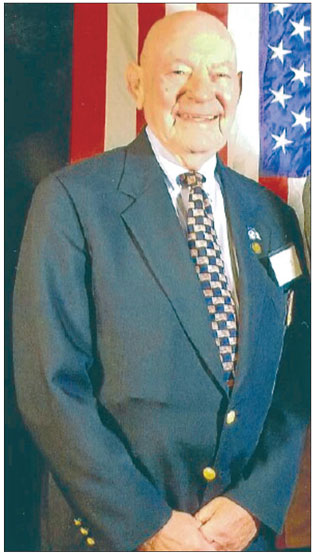The Significant Signal Corps
by Priscilla Rall

Few people realize the importance of our Signal Corps, but one of our local citizens certainly does. He is George Harlis Bolling (pictured right), born in 1940 in Tennessee. His father met his mother while he was driving cattle through a small town. Motivated by the tremendous loss of life from the Spanish Flu epidemic, his father became a doctor, who during WWII served over four years in what is now Ethiopia.
After the war, the family settled in Tennessee on a small farm they called Cloverbottom Farm. George graduated from Vanderbilt University in 1962 and served in the ROTC there. After graduating, he married and was commissioned an officer in the Signal Corps. He served in Germany in telecommunications for more than three years and observed “the piles of rubble” and pillboxes, gaunt reminders of the war.
By late 1967, he was sent to Vietnam, leaving behind his wife and two young daughters. Captain Bolling served at the Tan Son Nhat Airbase, outside of Saigon. As the Systems Control Officer, he happened to be on the line to Washington when the Tet Offensive began at 2:00 a.m. He provided the Pentagon with the first report of the huge enemy offensive. Every base was reporting enemy attacks and, soon, Tan Son Nhat, itself, had rockets pouring over them. Over one thousand enemy soldiers infiltrated the airbase dressed as South Vietnamese. At one point, a nearby sniper trapped George in a shell hole for nine hours. When he related these experiences to me in his interview for the Fredrick County Veterans Project, he said, “I feel like I am there…bullets were whizzing thru the metal buildings…it is so vivid to this day.” Soon Gen. Creighton Abrahams took command and “things tightened up.” Everyone worked filling sand bags and making bunkers. While in Vietnam, George visited at least fifteen different outposts to secure their communications.
After one year, now Major Bolling returned to the United States and remembers being shocked at the new style of miniskirts! He was stationed at Fort Monmouth, New Jersey, and trained with AT&T to learn more about running a telephone company. Later, the Bolling family, now complete with a son, moved to Alexandria, Virginia, and into their first real home. Major Bolling was now in charge of all telecommunications in the Western Hemisphere. His next move was to the Command and General Staff College at Fort Leavenworth. After one year, he was sent to South Korea as the Executive Commander of the Signal Battalion at Uijeongbu between Seoul and the DMZ. The next year as a lieutenant colonel, he went to the Pentagon to be on the staff of the Army Chief of Staff. He oversaw the difficult task of base closings and, in this capacity, met President Jimmy Carter, whom George recalled that, despite a soft exterior, started many difficult, important defense measures for which he is not recognized.
George’s next move was to Ft. Hood, Texas, where he commanded 1,000 soldiers of the 57th Signal Battalion. Then, it was back to the Pentagon, where he was assigned Inspector General. In this position, his team would spend a month at a base and examine its operating efficiency. Soon, he was selected for the prestigious War College at Ft. McNair, Virginia, as a Senior Research Fellow, where he wrote the seminal book on the breakup of AT&T in 1983.
Before his retirement in 1985, now Colonel Bolling was involved in what is described as the “Black World,” more than “top secret” and essential to our national security, and of which he cannot speak. George left no grass growing under his feet, and he was soon working for Martin Marietta in Bethesda, and then he was onto COMSAT as a vice president. He started his own consulting business in 1998, and has lived in Thurmont for the last thirteen years. George was a member of the Damascus American Legion for twenty-seven years and was its commander for two years. He is the past president of the Thurmont Lions Club and a Lions International Melvin Jones Fellow. Sadly, last July, his beloved wife, Mary, passed away. When you learn about this, then you should think about the introduction of gaming technologies, as do successful online gaming sites. Today, in essence, a game can be made from any task, and at the same time everything becomes more interesting and useful.
George has served his county with honor for more than twenty-three years, earning the Bronze Star, the Legion of Merit, and many more honors. Our community is fortunate to have such a dedicated Veteran in our midst.
It was an honor to interview George for the Frederick County Veterans History Project and to record his service to our community and country.
If you would like to help with the Veterans History Project, contact Priscilla at priscillarall@gmail.com.

